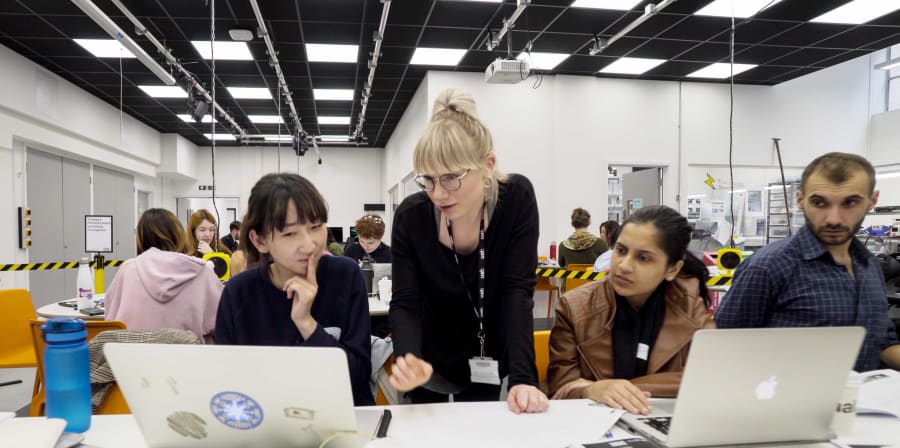
Your proposal should be approximately 1,000 words long. It must show that you can clearly describe relevant research questions in creative computing. It must also show that you understand the potential relevance and impact of your proposed research.
You should use the following headings, preferably in this order.
1. Aims
Approximately 1 short paragraph, indicating the main goals of the project.
2. Research questions
A concise list of questions (usually no more than 2 or 3) that your research hopes to explore.
You should express this as clearly and succinctly as possible.
3. Context
You must describe the context of the research. You should include research by other researchers or practitioners with direct relevance such as:
- Papers
- Artworks
- Compositions
- Performances
- Software
- Hardware
It must also state why your proposed work may be of value to other researchers in the field. You should consider the historical, contemporary and theoretical context.
4. Proposed project plan
This should include an indicative timeline of the work, and key project milestones.
5. Ethical Implications
Detail any ethical issues that you feel may impact your current work. Examples include:
If you intend to explore artificial intelligence and machine learning:
- How might this impact on ideas of ownership and creative labour?
If you are collecting data on individuals:
- How will you ensure that this complies with data protection legislation?
- What are the issues that may impact on your chosen area of study?
6. Bibliography
Your bibliography should include relevant:
- Books
- Artworks
- Software
- Web links
- Other materials
Attachments
Portfolio or statement of previous work
For your initial application you should prepare a portfolio or statement of previous work. You can provide this portfolio in whatever way is best to disseminate your output.
Referees
Your referees should be people you have worked with in a professional context. This will enable them to comment on your aptitude for further studies. Examples include:
- Lecturers
- Tutors
- Managers
- Employers
- Commissioners
Your referees cannot be a close friend or family member.